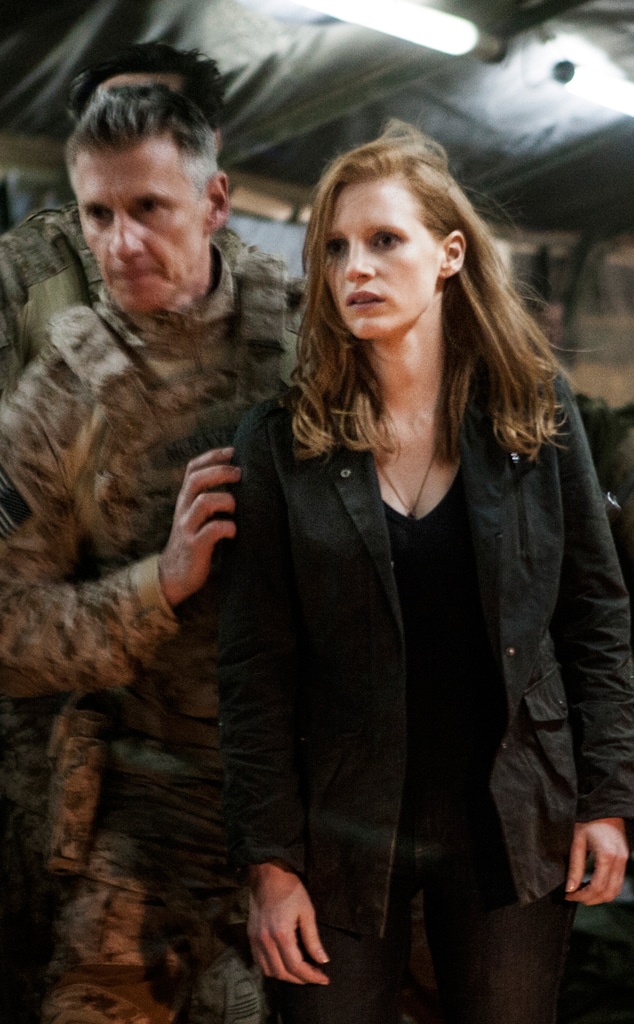 Columbia Pictures
Columbia PicturesThere's one thing everyone who watches Zero Dark Thirty—Oscar-winning director Kathryn Bigelow's take on the manhunt for Osama Bin Laden starring Jessica Chastain—will surely agree on: It's intense. As in, two hours of edge-of-your-seat, white knuckle-worthy cinematic intensity.
For some, that's a good thing and could ultimately lead Zero to an Oscar Best Picture win (it's guaranteed a nom, at the very least) and a Best Director win for Bigelow. To others, it's another component of what all adds up to a pro-torture propaganda piece.
"No waterboarding, no Bin Laden: that's what 'Zero Dark Thirty' appears to suggest," New York Times writer Frank Bruni claimed about early sequences in the film that depict, notably, an agent named Dan (Jason Clarke) using "enhanced interrogation methods" on a detainee.
Screenwriter Mark Boal takes offense to this notion though. "I understand that those scenes are graphic and unsparing and unsentimental," he explained at the Los Angeles press junket, held at the Beverly Wilshire Hotel, noting that he (as well as Bigelow and the cast members present) had not read that specific article.
"But I think that what the film does over the course of two hours is show the complexity of the debate and the number of different ways that information came into the CIA," he continued, labeling the allegations of pro-torture messages a "mischaracterization." "Including, in that specific scene, it shows that torture didn't stop that particular attack that the characters are worried about."
The film's star, Chastain (who will also surely get an Academy nomination, if not a win, for her performance as a CIA agent named Maya), agrees: "I'm very excited that people are now seeing the film and they're realizing it's not a propaganda film and it doesn't have an agenda. It just tries to show this moment in history as accurately as possible."
The controversy is to be expected though, as such is usually the case with reality-based films about politics (especially wartime politics). Boal recalls, "The film was a political chew toy before I even wrote a word and I think that will, unfortunately, continue and people will bring what they want to see."
Leave it to Bigelow to sum it up best then. "All I can say is that, personally, as they both mentioned, they were difficult to shoot, those sequences," she weighed in (Clarke, like Chastain, had both said as much). "I wish it was not part of our history. But it was."